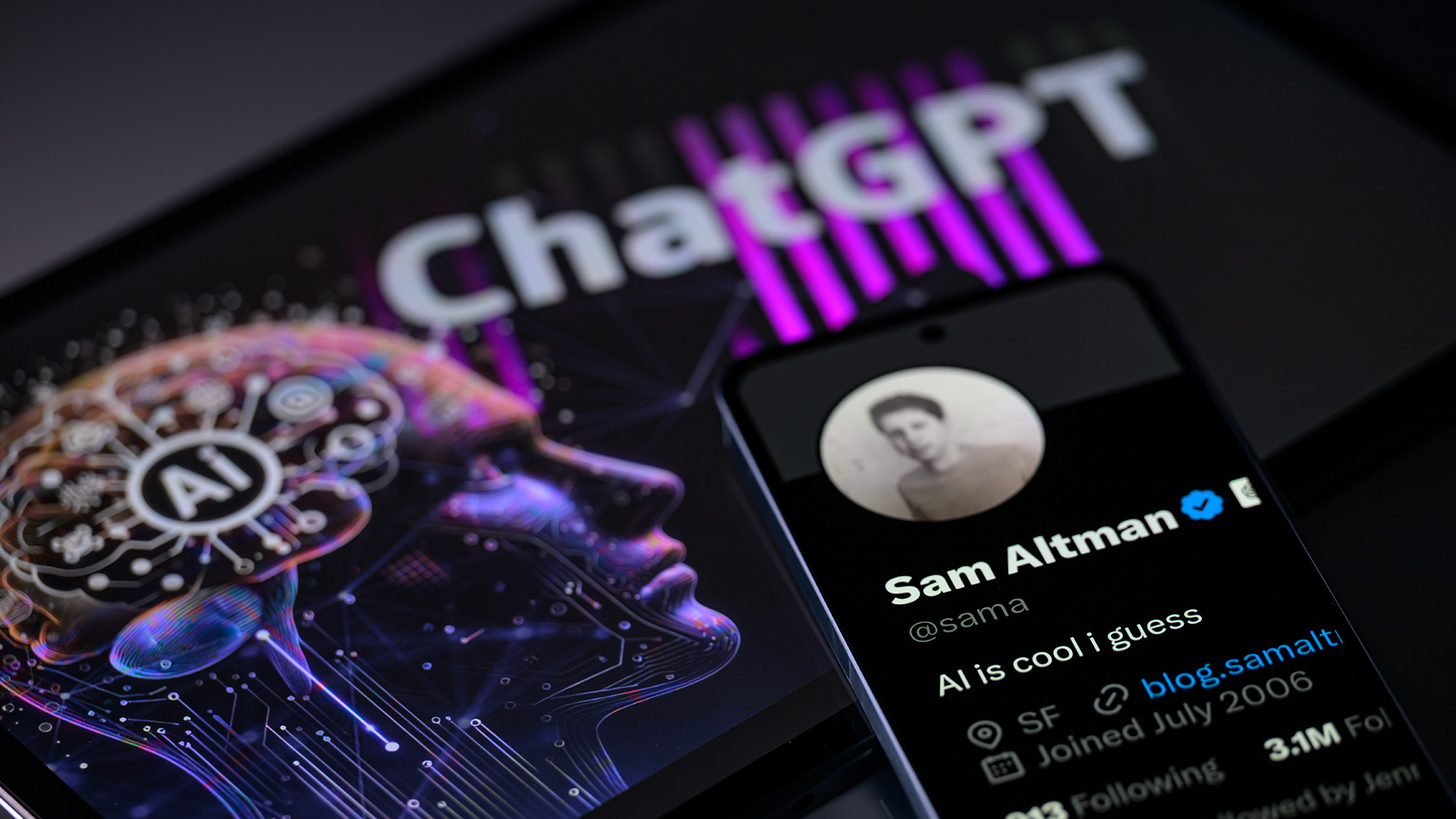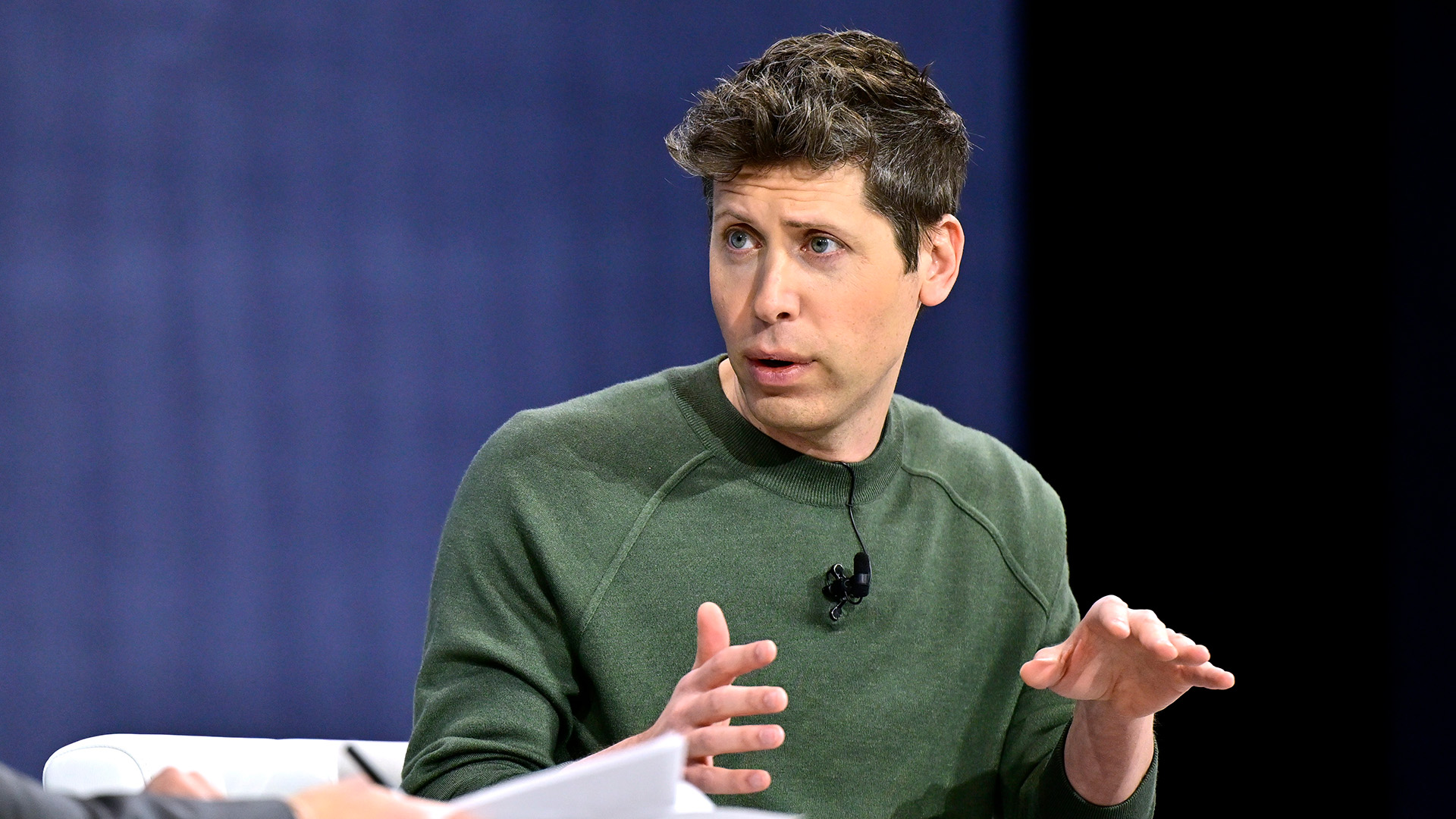Sam Altman warns the "dead internet theory" may soon come true — bots and AI like ChatGPT could kill the web in 3 years
OpenAI’s CEO fears AI‑generated content will overwhelm the human internet within the next three years.

All the latest news, reviews, and guides for Windows and Xbox diehards.
You are now subscribed
Your newsletter sign-up was successful
Generative AI has evolved beyond a mere tool that can generate images based on text prompts, it's delivering real-life impact in society across medicine, education, computing, entertainment, and more. However, its implications can be viewed as both positive and negative.
On one hand, it shows great promise in the healthcare sector, with new technology capable of detecting early signs of dementia and even cancer, making it easier to begin treatment before the condition spirals out of control. On the other hand, this sophisticated technology poses an existential threat, with a 99.9999% probability of ending humanity.
Even Google DeepMind's CEO Demis Hassabis claims AGI could be achieved soon but warns that society isn't ready to handle all that it entails. He claims that the prospects keep him up at night.
And as it happens, the dead internet theory could become a reality within the next three years, as AI‑generated content appears to have surpassed human‑written material. (via Popular Mechanics). For context, the dead internet theory suggests that the internet predominantly consists of bot activity and AI-generated content manipulated by algorithmic curations. It further suggests that the efforts are designed to establish control over the population and reduce organic human activity.
Perhaps more concerning, cybersecurity firm Imperva released a report called "Bad Bot" in 2024, which claimed that approximately half of all traffic on the internet was AI-generated. Since 2021, that figure has skyrocketed from 42.35 of internet traffic being AI-generated to 49.6% in 2023.
Based on this trend, most of the internet traffic and content will mostly be from bots and automated using AI. Over the past few years, we've seen leading publications layoff most of their staff and replace them using AI. Consequently, a report from the Pew Research Center claims that 38% of human-made websites from 2014 no longer exist as a result of a process called "link rot."
Last year, a study by Amazon Web Services (AWS) researchers suggested that 57% of content published online is AI-generated or translated using an AI algorithm, negatively impacting the quality of search results.
All the latest news, reviews, and guides for Windows and Xbox diehards.
Microsoft and OpenAI have found themselves fighting several copyright infringement lawsuits in the corridors of justice. This is because AI-powered tools like Copilot and ChatGPT heavily lean on online content for their training.
However, a separate report suggested that the technology has hit a wall due to a lack of high-quality content for training, preventing top AI labs like OpenAI, Google, and Anthropic from developing advanced AI models.
Even OpenAI's CEO thinks the dead internet theory is coming true
"I never took the dead internet theory that seriously, but it seems like there are really a lot of LLM-run Twitter accounts now," OpenAI CEO Sam Altman posted on X.
i never took the dead internet theory that seriously but it seems like there are really a lot of LLM-run twitter accounts nowSeptember 3, 2025
AI has seemingly started to overtake popular search engines like Google and Bing, with most users revealing that they are more inclined toward AI-powered search tools like ChatGPT for their search queries.
Even OpenAI CEO Sam Altman recently indicated that he no longer uses Google for his searches and now relies more on ChatGPT. However, he admitted that he was a tad skeptical about ChatGPT's ability to dethrone Google from its dominant position in search.
Google is also integrating AI into search with tools like AI mode and AI Overviews, which for the most part have proved not to be reliable. While the latter promises curated and bite-size responses scrapped from the internet, it has fallen short of expectations by generating inaccurate responses and, perhaps more concerningly, recommended users to eat rocks, glue, and even commit suicide.
Google quickly to shift blame to a data void, claiming that a lack of vast information on particular topics on the web heavily contributed to instances where the feature generated misleading search results. It further claimed that the screenshots shared by users that highlighted it, generating misleading responses were fabricated.
In 2024, former Twitter CEO and co-founder Jack Dorsey claimed that it'll be impossible to tell what's real from the fake "because of the way images are created, deep fakes, and videos." He warned that users will need to be more vigilant and experience things by ourselves to assert its authenticity.
Do you think generative AI and bots have the potential to completely take over the internet and ruin search quality? Share your thoughts with me in the comments.

Kevin Okemwa is a seasoned tech journalist based in Nairobi, Kenya with lots of experience covering the latest trends and developments in the industry at Windows Central. With a passion for innovation and a keen eye for detail, he has written for leading publications such as OnMSFT, MakeUseOf, and Windows Report, providing insightful analysis and breaking news on everything revolving around the Microsoft ecosystem. While AFK and not busy following the ever-emerging trends in tech, you can find him exploring the world or listening to music.
You must confirm your public display name before commenting
Please logout and then login again, you will then be prompted to enter your display name.

